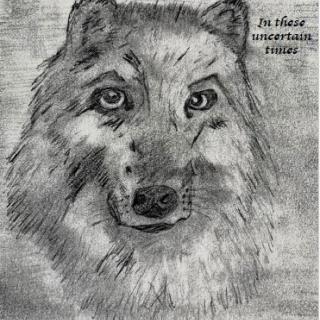Advertisement
I was in the second grade at Highland Avenue Elementary School in Columbus when President Kennedy was assassinated. The principal made the announcement over the loud speaker, and school was dismissed. I walked the short distance home and found my mother glued to the television set; she had been interrupted by the horrible news while watching the soap opera, As the World Turns. The television in my parent’s bedroom remained on for the next several days.
One would think there could be little left to say about JFK, Jacqueline Kennedy or the rest of the Kennedys of that fabled generation. However, since this year is the fiftieth anniversary of his assassination, the book world has been inundated with books about Camelot. Even the Kennedys were swept up in the misty memories; Jean Kennedy Smith, JFK’s only surviving sibling, Caroline Kennedy, his only surviving child, and a host of Kennedys from the third generation made a sentimental journey to Ireland, the land of Kennedy–and Fitzgerald–ancestors to retrace the steps of his famous 1963 visit there.
Many do not know that, as a young man, Kennedy had aspired to be either a journalist or a professor. Books and writing were integral parts of his being. He was exceptionally well read, no doubt in part due to all the time he spent in bed sick as he was growing up, and a gifted writer. He also traveled extensively as a young man. The summer before his sophomore year in college, he visited Germany and Italy, already under the spell of Adolph Hitler and Benito Mussolini.
Two years later in 1937 his father, the late Joseph P. Kennedy, was appointed by President Franklin D. Roosevelt as Ambassador to the Court of St. James, and the family moved to London. The future president was able to visit Latvia, Poland, Palestine, Russia and Turkey, among other places. He wrote his father highly descriptive letters about the issues and problems facing those countries.
It is said that travel broadens the mind, and in the case of JFK that was especially so, he entered his senior year at Harvard University a changed man. Although he didn’t abandon his pursuit of pleasure, he did become a more thoughtful and engaged student and this was reflected in his grades that final year. He wrote his senior thesis, Appeasement at Munich, on England’s lack of preparedness in the face of Hitler’s rise. With help from his father, the thesis, renamed Why England Slept, was published in 1940 to great acclaim. The book sold ninety thousand copies (it is still available for purchase at the Kennedy Library) and landed on the best sellers' list. While engaged in a lengthy and painful convalescence from back surgery some years later while he was a United States Senator, he wrote Profiles in Courage, another best seller for which he won the 1957 Pulitzer Prize for biography.
Although he was the first television president, Kennedy grew up in an age when people still wrote letters and kept diaries. (Jacqueline Kennedy refused to keep a diary.) There are more than two million letters to and from the president in the JFK Library, ranging from the trivial (one correspondent asked Kennedy if he wore dentures) to those of tremendous importance. Sandler has carefully chosen a panorama of correspondence and divided it into five broad categories. He also provides context for each letter which allows the reader to gain a fuller picture of the late president from his childhood through his death.
The first letter presented is a request of his father to raise his allowance from forty cents to seventy cents so he might cover his expenses as he engaged in his scouting activities. It is a very mature letter; he mentions that before the responsibility of scouting, he generally blew his allowance on frivolous things such as ice cream. As a scout, however, he ensures his father that he has learned to put away childish things and could be trusted with such a large raise. The plea shows him as precocious, thoughtful and able to use evidence to make his point.
There is a tremendous variety of correspondence between the president and all types of people. The early relationship between JFK and Eleanor Roosevelt, as viewed in their letters, was testy; she didn’t think much of the brash young man, advising him to “show a little less profile and more courage” and declined to support his run for the presidency. A physician wrote admonishing Kennedy for taking off his coat during the frigid inaugural ceremony; civil rights leaders wrote to press Kennedy to take action on the crushing injustices which plagued African Americans in the United States; Catholics and non-Catholics alike wrote to him about his religious views and fealty to the Catholic church; former President Harry Truman wrote often, advising Kennedy to “give them hell.” JFK received some of his most interesting letters from children giving him advice or asking questions about campaigning, his physical fitness initiative and Santa Claus. His replies to the many children who wrote to him are gentle and reassuring as befitted a man who had two small children.
Kennedy’s correspondence with Nikita Khrushchev shows how dangerous the world was at that time. Their relationship, which began with their disastrous, at least for JFK, meeting in Vienna in 1961, mellowed over the course of the Kennedy administration. Both men came to realize that bellicosity and mistrust had to give way to mutual understanding and a desire for peace. They had led the world to the brink of nuclear war, but due to their ability to exchange letters privately, they were able to be candid and hopeful with each other. Their secret correspondence allowed them to agree that nuclear war was untenable. This in turn begat the Test Ban Treaty, which many historians and political scientists believe to be the crowning achievement of the brief Kennedy administration.
The Letters of John F. Kennedy shows us a man who may have been the most literate and learned occupants of the White House ever. The beauty of this volume is that the myths, hagiography, conspiracy theories and obsequiousness so prevalent in books about Kennedy have been stripped away, and we are left with the essence of the man and the impact he had on people from all walks of life. The Letters of John F. Kennedy is a fine and welcome addition to the material on the slain president. That no one thought to look at JFK’s correspondence for fifty years is quite surprising.



